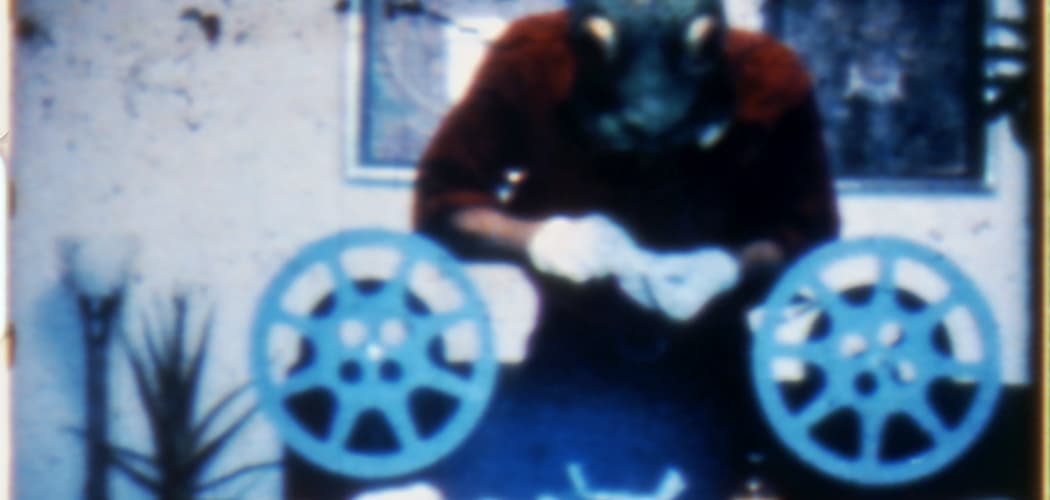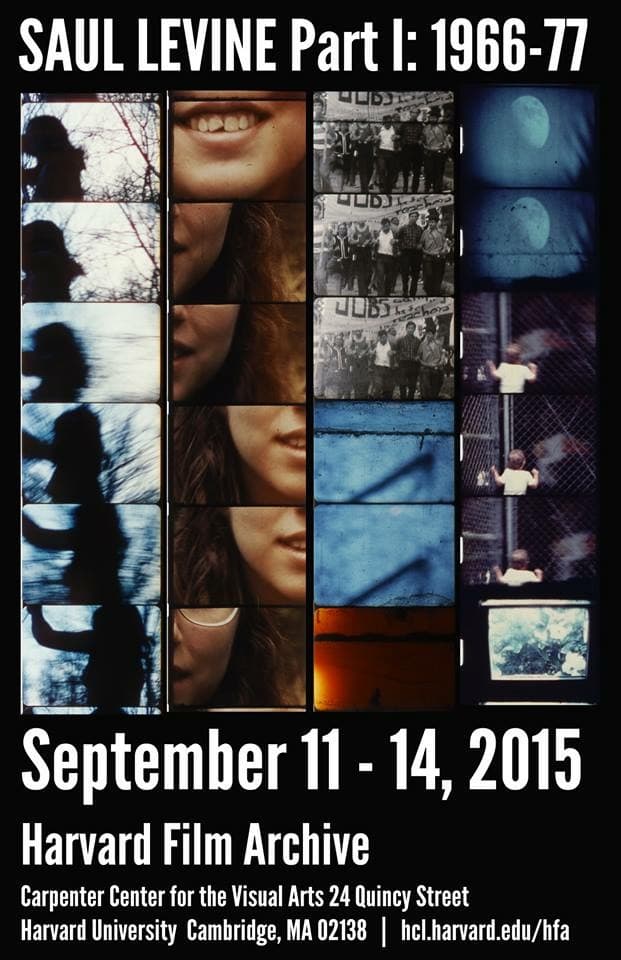Advertisement
Filmmaker Saul Levine's Early Work Showcased At Harvard Film Archive

Back in the mid-60s, while sailing in the New Haven Harbor, Saul Levine and a couple of friends goofed around, jumping from a buoy to the moving boat and back (the aquatic version of parkour).
Levine had brought along an 8mm camera and wanted to shoot his pals' antics. One suggested that Levine would best be served by the higher vantage point of the 8-foot buoy, so literally, Levine took the creative leap, but didn't make it, nor did his camera, which also went in the drink.
Figuring all was lost, Levine developed the film out of curiosity. What came back were abstract images: turquoise swirls punctuated with the burning white blur of the sun and a few discernible images of his friends atop the buoy. Levine spliced it all together in a stark montage and made what would be his first "experimental" film, "Salt of the Sea."

Almost 50 years later, Levine, who resides in Somerville and is a professor at the Massachusetts College of Art and Design and the programmer of the MassArt Film Society, is still at it. The Harvard Film Archive, recognizing the weight of underground filmmaker's contribution, will showcase Levine's early works with "Saul Levine, Part I: 1966-77." The program runs Friday, Sept. 11 through Monday, Sept. 14 and Levine will be in attendance and will take part in a Q & A after each screening. There are also two more future programs in planning.
If the name Saul Levine and the notion of experimental filmmaking or avant-garde cinema eludes you, think of some of the video installations you might have seen at the ICA, but with a more intimate or diarist spin. For Levine, who finds much richness in the value and malleability of words (he initially pursued playwriting and poetry, but could not fully find his voice in a way that resonated), the label "experimental" is misleading.
"People call Orson Welles and Alfred Hitchcock experimental," Levine notes, "but what’s really being said is that I’m not a commercial filmmaker." By loose definition, experimental filmmaking is low-to-no budget productions in which the artist is the writer, director, producer and editor, spinning together an arty infusion of imagery that often has personal subjects or pointed socio-political commentary. In the most general use of the term, Levine greatly admires Cocteau ("Beauty and the Beast" and "Orpheus") who registered broad commercial and critical success while being routinely unconventional.
Levine refers to his works simply as, "representations and meditations on the human condition." Most are short (4-30 minutes, the format influenced by Levine's frequenting of poetry readings, where he admired the punch of the form's terseness) personal observations of friends, family and the zeitgeist of the moment, that are cut and spliced together in a frenetic, dreamy fashion. The culmination is unique and profound and evokes an emotional response from the viewer that is at once, self explorative while being connected to Levine's vision. The bulk of Levine's works are silent too, to which Levine acknowledges the high point of entry: "They are meant to be seen silent. For some people that is painful and for some, that is a blessing."
Typical of Levine's work and on display in the lineup are several of his "Notes" themed films.
"There are so many kinds of notes," Levine says delving into words and their meanings again. "You can have a Post-it note, a thank you note, there's note taking and footnotes. It’s kind of endless. Notes to me was always something very open ended, and so that’s what I did."
Many of these "Notes" were letters to friends. Take "Note to Erik" (1968) an inside joke between Levine and his friend who he traversed the country with "On the Road" style. The film features their common friend Sharon Moss, a dog person, naked and frolicking around in the snow with two cats. "It's like social media today," Levine says, "something for someone you know, for your 'friends,' but also has meaning and value to others."
"Note One," chronicles Levine's parents about the house on the Sabbath, but not all "Notes" are so micro-focused. "New Left Note" (1968-82) intermixes images of Richard Nixon and the war protests that Levine attended. The graininess and flash editing creates a veritable time capsule of the conflict that swirled around the Vietnam War. With matters of police brutality aswirl today, "The Big Stick/An Old Reel" (1967-73) couldn't be more germane as it crosscuts a Chaplin film (Keystone era cop with a sizable cudgel) and street chaos being swept under by riot police.
Some of Levine's more directly accessible works, his "Driven (Boston After Dark)" series, which are more contemporary, where Levine rides around in a car filming various subjects of interest (students, friends, etc.) captures the essence of a moment in life and culture as the driver talks (and Levine too) and navigates the night light streets. They're equally riveting as his earlier and more experimental work, and hopefully on the HFA's docket for the later programs. The one thing you'll notice in these films however are the sudden shakes of the camera that are clearly not from bumps in the road or bad driving. Levine has tremors and embraces the detraction. "You know," he laughs, "I'm a bad example of a filmmaker, I don't have a steady hand and I have poor organization."
He is however, a cornerstone of the American underground film movement anchored by Kenneth Anger and Maya Deren ("Meshes in the Afternoon" is as haunting and noirish as Chris Marker's iconic "La Jetée"). Levine says there is a "constant conversation" amongst he and his ilk. Other influentials closer to home were fellow MassArt prof, Mark LaPore who sadly passed in 2005.
You can join the conversation with Levine at the HFA from Sept. 11 - 14.
Tom Meek is a writer living in Cambridge, Mass. His reviews, essays, short stories and articles have appeared in The Boston Phoenix, Paste Magazine, The Rumpus, Thieves Jargon, Charleston City Paper and SLAB literary journal. Tom is also a member of the Boston Society of Film Critics and rides his bike everywhere. You can follow Tom on Twitter at @TBMeek3 and read more at TBMeek3.wordpress.com.